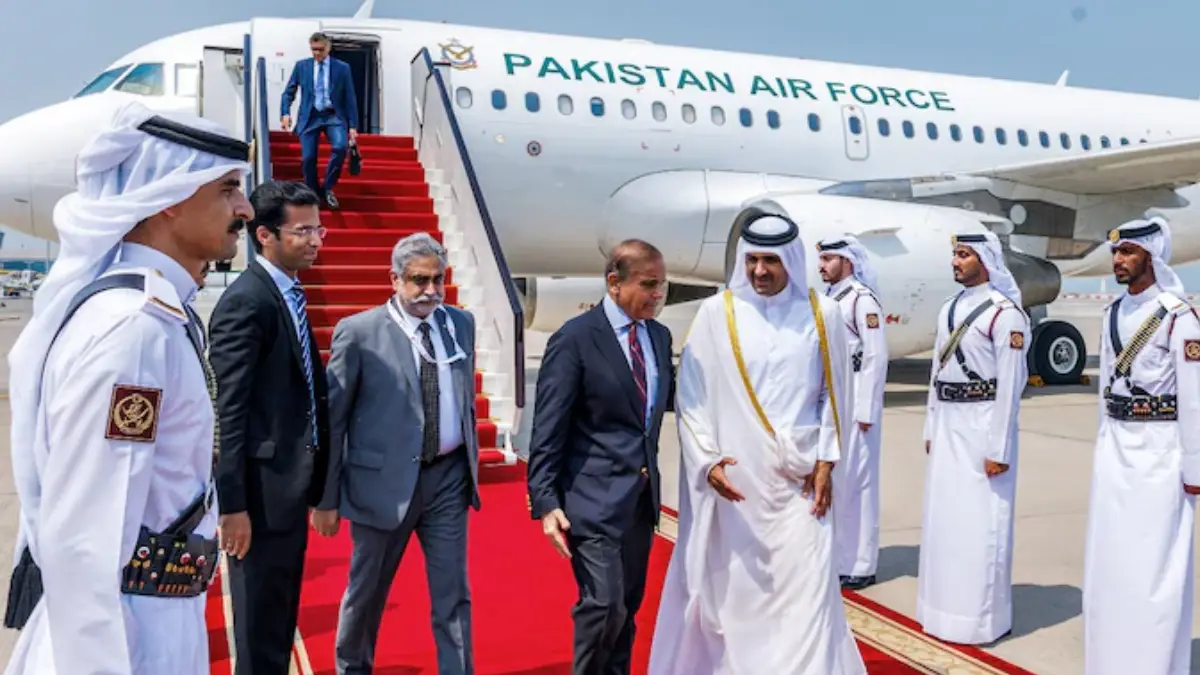New Delhi : On Monday, scores of leaders from Arab and Islamic nations rushed to Doha, for an emergency meeting to present a united response to Israel’s strike on Hamas leaders in Qatar last week. The proposed alliance, dubbed “Arab Nato” by Egypt, which has the Arab world’s largest army, came at the meeting in Qatar attended by Pakistan and Turkey. Pakistan, the only nuclear-armed Muslim state, not only attended the emergency summit but also called for a joint task force to “monitor Israeli designs in the region”.
Turkish President Recep Tayyip Erdogan, who was also present at the Summit, called for an economic squeezing of Israel. Iraqi Prime Minister Mohammed al-Sudani also batted for a Nato-style collective security framework, stressing that “the security and stability of any Arab or Islamic country is an integral part of our collective security”. The decade-old initiative, launched by Saudi Arabia after the Arab Spring, announced the formation of a 34-nation Islamic alliance against terrorism.
The emergency Arab-Islamic summit in Doha, convened by Qatar on Monday, also marks a big moment in Middle Eastern geopolitics and security, with Egypt’s renewed push for a Nato-like collective defence mechanism. First proposed by Cairo at the 2015 Arab League Summit in Sharm El Sheikh amid the Yemen conflict and the rise of ISIS, the idea of a joint Arab force has long languished due to sovereignty concerns, regional rivalries, and logistical hurdles.
Egyptian President Abdel Fattah al-Sisi, leveraging his country’s status as home to the Arab world’s largest military (over 4.5 lakh active personnel), has positioned Cairo as the alliance’s nerve centre. The force would rotate leadership among the 22 Arab League members, incorporating land, air, naval, and commando units, alongside integrated training and logistics. Saudi Arabia is eyed as a principal partner for the deputy command role, potentially drawing in Gulf states like the UAE and Bahrain for funding and advanced capabilities.
The proposal frames itself as a “defensive umbrella” rather than an offensive pact against Israel. It aims to deter security threats and terrorism or anyone who poses a threat to the Arab world’s safety and stability. At the summit on Monday, Qatari Emir Sheikh Tamim bin Hamad Al Thani lambasted the Israeli attack as “blatant, treacherous, and cowardly,” accusing it of sabotaging US-backed Gaza ceasefire talks. While the joint statement urged reviewing diplomatic ties with Israel and pursuing legal action, the real momentum lies in military integration.
Read Also : Operation Sindoor : Jaish Admits Masood Azhar’s Family Torn Into Pieces During Strikes
